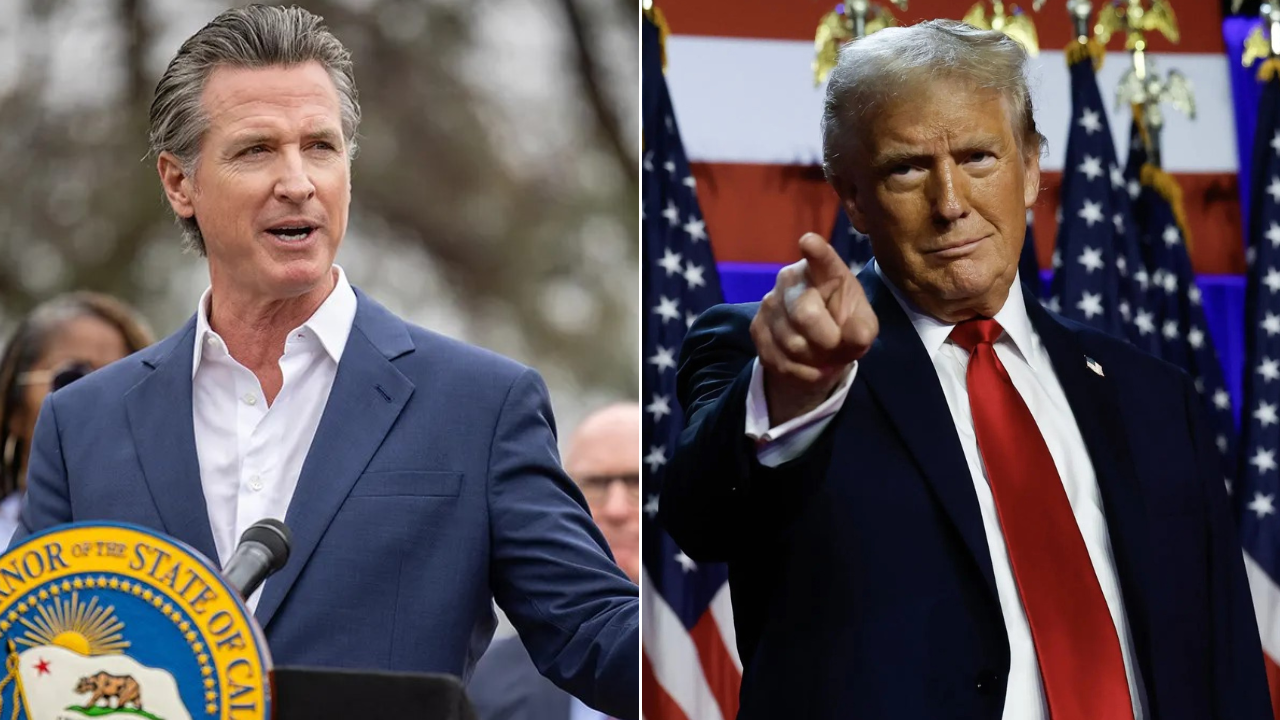Seth Moulton’s had a tough few weeks.
Two days after the election, The New York Times published a post-mortem of the 2024 general election contest in which the Democratic Massachusetts congressman appeared to blame his party’s poor performance on its support for trans rights. The comments came after Donald Trump and the GOP narrowly bested Moulton’s party on a campaign strategy that included TV ad buys during sports games painting Vice President Kamala Harris and other Democrats as too far left because they let federal money go to sex change procedures for prison inmates.
There was little evidence at the time that those ads mattered more in swaying the election than, say, voters souring on the economy or their views on immigration. Some House races weren’t even called yet. But there Moulton was, seeming to throw the trans community under the bus.
“Democrats spend way too much time trying not to offend anyone rather than being brutally honest about the challenges many Americans face,” Moulton said, according to the Times. “I have two little girls, I don’t want them getting run over on a playing field by a male or formerly male athlete, but as a Democrat I’m supposed to be afraid to say that.”
In the wake of that story, everything changed. The Beltway media seized on the fact these concerns were coming from a centrist lawmaker — a former presidential candidate in a safe, deep blue House seat — to suggest the party was incredibly divided on this topic. A gush of D.C. gossip and intrigue stories has followed, much of it sourced to anonymous lawmakers and campaign staffers.
Making matters more dire for Moulton, trans people and civil rights advocates took his word choices — he said “male or formerly male,” appearing to refer to transgender women — to mean he believes that trans women don’t exist or should be treated as men. Moulton, a cis straight male and Marine vet in his forties, was pilloried by many in the LGBTQ+ community as out of touch. He was chastised by his own state’s Democratic governor, Maura Healey, as well as some of his former staffers and interns. He faced protests and calls for a Democratic primary challenge.
Editor’s picks
Yet Moulton, who has consistently supported pro-trans rights bills in Congress, insists he didn’t mean to kick off this furor at all and argues that some reporting on his comments has been inaccurate. He claims he gave the quote “as one example of many of how the Democratic Party just has a difficult time having conversations about contentious issues.” He says he wasn’t suggesting Democrats should ban trans people from sports — he wanted them to have a message to fight back against attacks. The congressman’s office tells Rolling Stone this was the only comment he made to the Times on the topic in that interview, and that a Times reporter had specifically asked him to comment on transgender people.
“So when some media twist that to say, ‘Oh, Moulton is suddenly anti-trans,’ that’s not true at all,” says the Democrat, who was recently elected to a sixth term.
Moulton’s actual view on trans people in sports? He wants “reasonable restrictions” with the help of the experts. In our interview, he referenced two athletic bodies — the Olympics and the NCAA — that have set their own rules for trans competition. It’s clear his views aren’t even fully cohesive on the topic, as those two governing bodies diverge on how to tackle the subject: The NCAA allows trans women to compete in some sports but the Olympics have all but banned trans women from adult competition. The Olympics’ rules are awfully controversial.
But he also thinks sports are a wedge issue that stops bigger gains for the trans community. In our interview, he floated the idea of a “solution” to the partisan divide on trans lives: a grand bargain of sorts that would combine “reasonable restrictions” on sports with enshrined legal rights and health care protections for the trans community.
Related Content
After the Times story ran, the newspaper published a follow-up profile of Moulton on Nov. 16 that was headlined, “The Democrat Picking a Fight With His Party Over Transgender Rights.” The story described him as “suggesting that his party’s struggles in this month’s election could be traced to its support for allowing transgender girls to play in girls’ sports.”
In that story, the Times specifically noted its previous interview with Moulton had “touched off [a] furor.”
Moulton certainly wound up at the center of a fight within the Democratic primary. But to him, the Gray Lady started all this. And the congressman was so frustrated at the framing in this follow-up story that he personally contacted the news outlet to voice his disagreement with the headline, which did not change, his staff says.
The New York Times did not immediately respond to a request for comment.
Rolling Stone chatted with Moulton late last week to try and figure out whether he is really the transphobe his critics claim, whether his views have been mischaracterized, and how he thinks Democrats should approach dialogues around trans rights head on.
The transcript that follows has been edited for length and clarity.
I would like to start with the reporting around what you had said in the immediate wake of the election because it was one quote, and I do just mean to ask this: Has the reporting about your remarks been accurate and to the heart of what you were trying to get across?
Some of it has, but some of it has not. I think a lot of it lacks the real nuance, because this quote was part of a long conversation with The New York Times about the problems with Democrats and why we can’t relate to people in America, and I gave it as one example of many of how the Democratic Party just has a difficult time having conversations about contentious issues. So when some media twist that to say, ‘Oh, Moulton is suddenly anti-trans,’ that’s not true at all.
In fact, the exact opposite is true. And I think it does a real disservice to trans people if we’re not willing to take on these issues so we just cede them to the Republicans and their often hateful agenda.
Why do you think that quote about trans people in sports was what The New York Times chose to use from your long interview?
Well, I think they knew it would be controversial. Which is kind of my point. The backlash proves my point — that we have a tough time as a party even debating sensitive issues because we’re more focused on not offending people than solving problems. When we do that and we can’t even respond to Republican attacks, that’s a real problem.
I was on TV, on NewsNation, a couple of days ago responding to Nancy Mace’s attack on the new trans member of Congress and was proud to defend [incoming Rep. Sarah McBride] and defend Democratic priorities. But most of my colleagues? When I told them I did that, they were shaking their heads. They can’t believe I even took the risk of engaging on the issue.
Do you think that’s because of the media?
Well, the media is ultimately stoking the controversy.
But fundamentally, we do [also] have this problem as a party where we don’t like to discuss difficult issues. And I’ve heard this on a lot of other things too.
I remember about a year ago when I was talking to some people running for one of the Democratic messaging positions in the House about, how do you think we deal with immigration? And one of the answers I heard was, “We shouldn’t talk about it. It harms immigrants to even talk about it.” Which basically meant we were denying there’s even a problem at the southern border, and that has really hurt us as a party.
At the end of the day, this is to me fundamentally about: How do we regain the trust of a majority of Americans so we can actually win elections? We’re not going to be able to advance any of our policies — including protecting minorities who are targeted in America — if we can’t start winning again.
With respect to debate, there are people in the other party that controls the House, the White House, Senate, when they talk about debate, they’re talking about changing policy. When I hear you talk, it sounds like a debate about messaging. Do you think the Democratic Party should change the way it approaches policy on the existence of trans people, trans rights, or trans health care?
I think there are certain places like trans women in sports where we deserve to have a debate about the issue. I mean, the Olympics has restrictions sport by sport on this issue and I don’t think Democrats just want to cancel the Olympics. I think this is something that deserves debate.
When I use the example of thinking about being the father of two girls who will someday play on competitive teams, I’m not talking about kids — obviously they play on co-ed teams now, as everyone did, myself included — but when they’re at the age when sports are competitive, I think there are legitimate issues of competitive fairness and safety for adult competitive sports. That’s why the Olympics have some restrictions. That’s not an unreasonable position to debate.
But in most cases, like on issues like the economy and immigration, Democrats do have the right policies, and we have lost the trust of a majority of Americans. And partially that’s because Americans look at Democrats as so word-twisted and unable to engage in debates, like denying there’s a problem at the southern border, that they don’t take them seriously and they think we don’t take their concerns seriously.
With respect to sports, do you think the answer is some Democrats voting in favor of the Republican approach to sports in Congress?
No, this is exactly what I’m advocating against. See, this is the problem. This is exactly what I’m advocating against. If we just accept the Republican position, which is often extremist and decidedly anti-trans, then we’re doing a real disservice to the trans community and to other minorities that are targeted in different ways.
That’s why we have to be brave enough to have our own policy. To have these debates among Democrats and with voters to come up with reasonable, sensible policies that align with our values and that a majority of Americans can support.
I think the majority of Americans support civil rights. Republicans are trying to take away civil rights from trans people, and they’re getting away with it because Democrats refuse to even engage in the debate.
I mean, Harris barely even responded to Trump’s attack ad. It wasn’t until the very end where she just had this weak response [about how] it was a Trump administration policy that she even spoke about it.
With respect to the question of policy, there’s a lot of trans people in the United States right now, and there’s language out there in the appropriations bills that would all but end all federal funds to any entity that would even practice trans health care. With respect to medicine, do you think Democrats should change their approach at all — on messaging or policy?
I’m not sure. I certainly didn’t enter this debate as an expert on all these issues. But I think the attacks on basic civil rights and access to health care are some of the most serious threats to the trans community and we have to be more effective at defending them.
Do you think those advertisements during the election influenced the result?
They absolutely did. There was an exit poll that came out that said the number [three] reason that swing voters chose Trump was [they believed] that Kamala Harris cares more about trans people than the middle class. We’re in a state of denial if we try to pretend that these attacks weren’t effective.
That’s another reason why it’s so important that we respond because if we don’t have a strong response that the majority of Americans can support, then Republicans are going to keep running this play again and again.
I’ve interviewed a lot of folks in the LGBTQ movement and I’ve spoken to other Democratic lawmakers who all seem pretty convinced the attacks didn’t sway the results of the election. That they may have mobilized Republican voters but—
No, that’s a very politically convenient position to take [for those] who don’t want to engage the issue. That’s a great excuse for not engaging in this debate. And that’s exactly the problem that Democrats have.
Some have said that pivoting to the economy in that moment, in response to those ads and airing those ads, was the right approach. You think they’re wrong and there should’ve been some sort of response there?
I think you absolutely have to respond. This is exactly why a lot of people think Democrats are out of touch because you can’t even talk about these issues.
Some sort of message essentially?
If someone comes up to you, if across from you at the Thanksgiving table, raises a contentious issue and you just refuse to respond, always trying to change the subject, think about how that conversation is going to go. They’re not going to fundamentally trust you or they’re going to dismiss you as out of touch because you can’t even respond to their concern.
This is an issue of basic trust. If you look at our positions on a lot of issues, like on the economy for example where Harris’ policy was clearly designed to bring down inflation and Trump’s economic policies — tax cuts for billionaires, huge tariffs, and massive deportations, all of which will raise inflation — we clearly had a better economic policy for the working class. And yet all the polling shows the majority of Americans trust Republicans more on the economy.
Why is that? It’s because voters fundamentally just don’t trust Democrats, and in my view it’s because they feel we’re out of touch. And part of being out of touch is our unwillingness to even debate contentious issues amongst ourselves without canceling the conversation.
So just to put a finer point on it, to be specific here, the media has been taking it like you think we should have a debate on the policy of trans acceptance. Which doesn’t sound like your view based on these conversations — it sounds like you’re calling for a message for Democratic policies on this issue to rebut Republican attacks. Am I getting that right?
Absolutely.
Look — Nancy Mace, for example, is literally trying to deny the existence of trans people and that’s abhorrent, and yet so many Democrats won’t even respond and fight back like how I did on NewsNation the other night. Part of having a good response is being willing to debate debatable issues.
I mean look, the NCAA has restrictions on trans people in sports. And yet I’ve been called anti-trans because I’m willing to raise the issue. The fact that the Olympics and the NCAA have restrictions both says this is probably a reasonable thing to debate.
And you know, I don’t know exactly what the right answer is. I’m not trying to say what the restrictions should be. But to suggest as many people have that I am somehow anti-trans because I’m willing to have a debate on this issue [when] the majority of Americans agree we should have some restrictions [and] we should have some debate… That just shows the Democratic Party is more interested in policing words and canceling people who disagree with a strict left-wing ideology on certain issues than actually engaging with the majority of voters.
Think about this. If I just proposed, right, let’s have a debate about this? It is not settled that there should be no restrictions on trans women in sports. It’s a reasonable debate to have.
If the Democratic response to that is, we’re trying to cancel you because you’re also anti-trans, then you’re also sending that message to the vast majority of Americans. How are we possibly going to win an election if we tell people, if our response to the majority of American voters, is not only are you wrong but you’re a bad person for even raising the issue or having the debate? Or considering an alternate opinion.
Yeah I mean, personally, I’m trans. I’m a trans woman. I also completely appreciate the nuances of letting someone who goes through hormone replacement therapy immediately compete in the opposite sport upon starting that medication. I understand that and I myself, as a member of the community, have these conversations and I understand the sensitivities.
But the ACLU has told me the Republican proposal on sports would not only restrict it entirely but also define what is a man and what is a woman to erase trans people in statute for the first time.
It sounds like you’re saying… don’t do that?
That’s exactly my point. That’s my point. That’s what I’ve been saying throughout this entire interview and for the last few weeks.
When we refuse to engage on this issue we’re just ceding the arguing to the Republicans. That is the most dangerous thing for trans people. That does a real disservice to them.
Actually, I have to say, a lot of LGBTQ advocates have reached out to me. Many of them have literally just started the discussion by saying, I totally agree with you both on reasonable restrictions and on the fundamental point I’m making which is that we have a real party where we can’t even [discuss] these issues.
I don’t know if this is exactly the right answer but one thing I have heard from the trans community is that maybe we’ll accept some reasonable restrictions on athletics in exchange for codifying into law civil rights and access to health care because those are really the core issues.
Now I’m not speaking as a trans person. I think this is a big problem, Democrats just try to tell everyone what the right answer is instead of listening to people who actually have this experience. It’s important for lawmakers like me to listen to people like you, as opposed to just preach down to everybody about what the right answer is.
I very much want to engage in that debate and learn myself, but that’s an example of one of the solutions I’ve heard from the community itself on this issue, and that’s exactly the kind of discussion we should be having.

 2 hours ago
1
2 hours ago
1
















.png)

.png)
.png)
.png)













 English (US) ·
English (US) ·  Hindi (IN) ·
Hindi (IN) ·